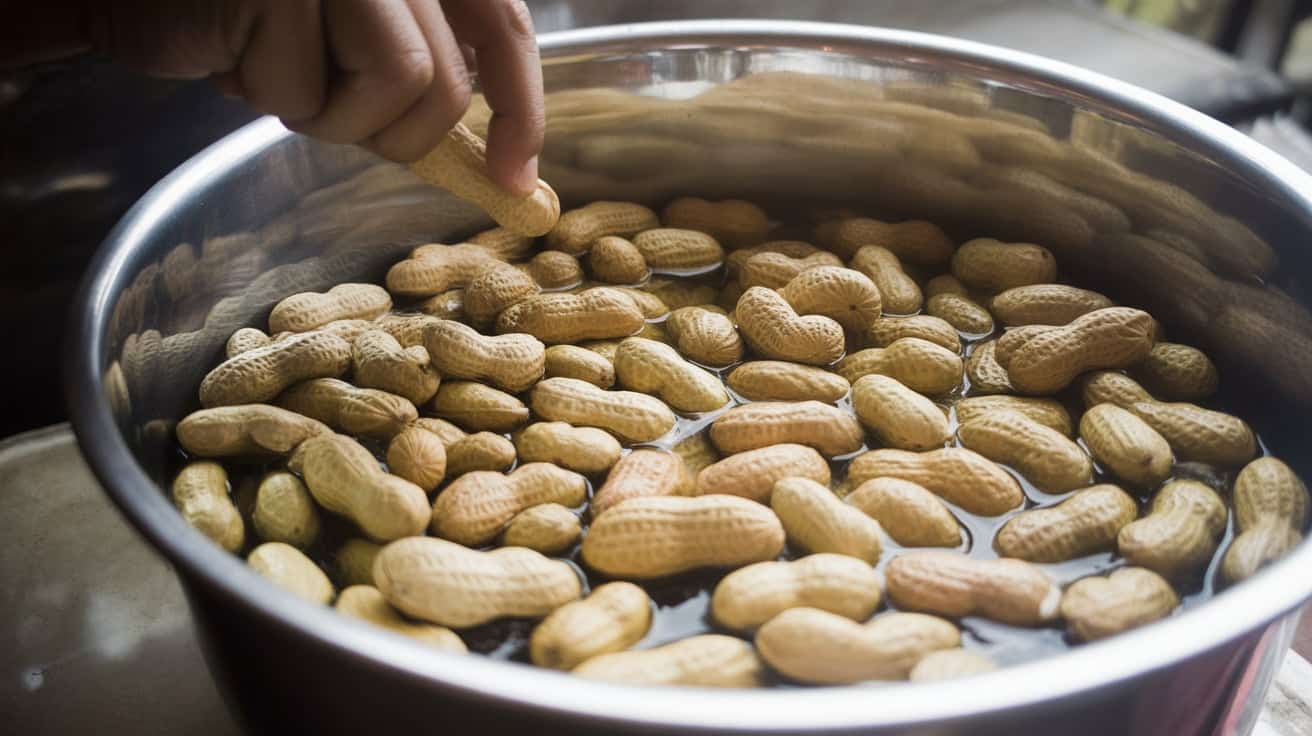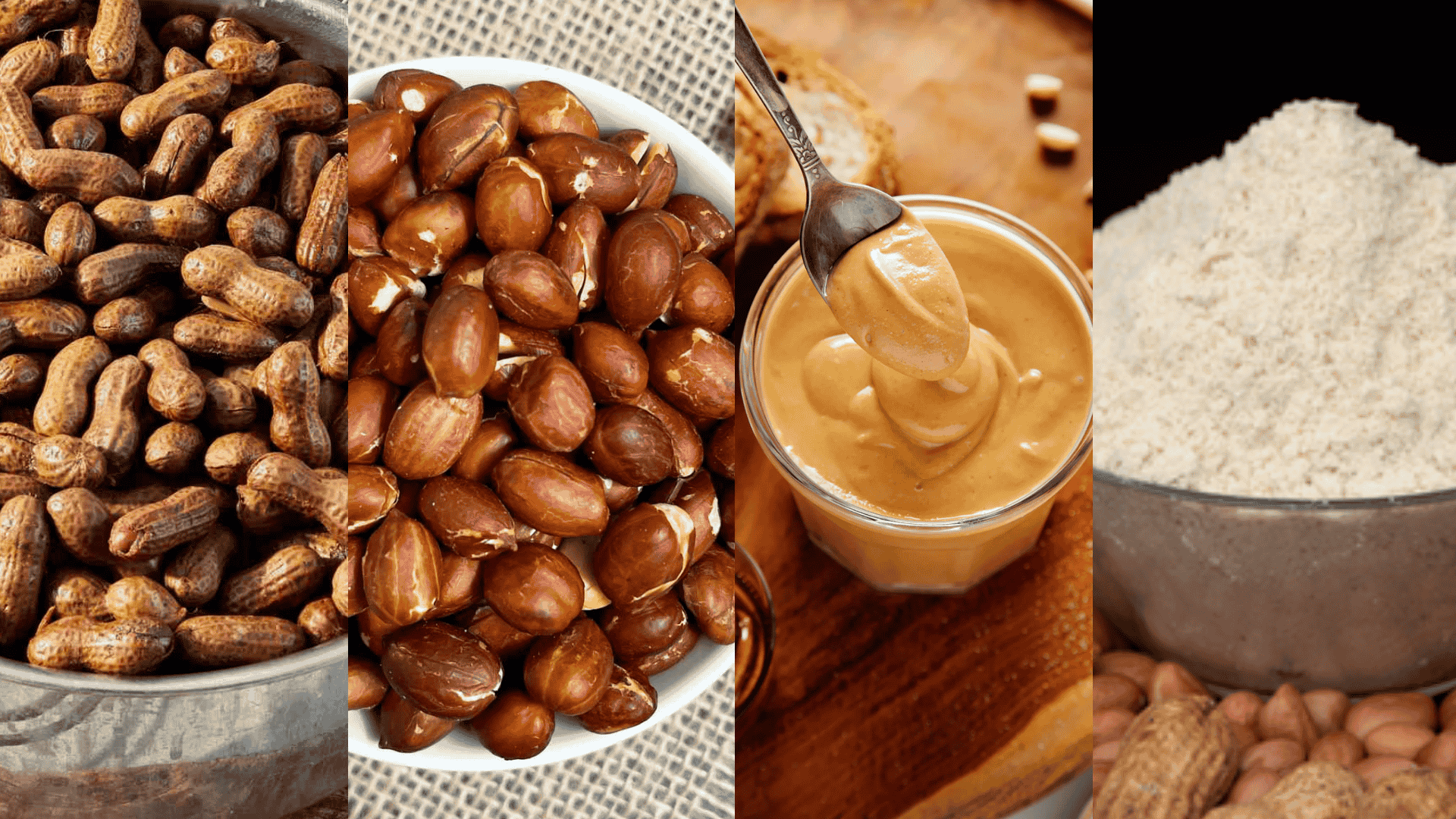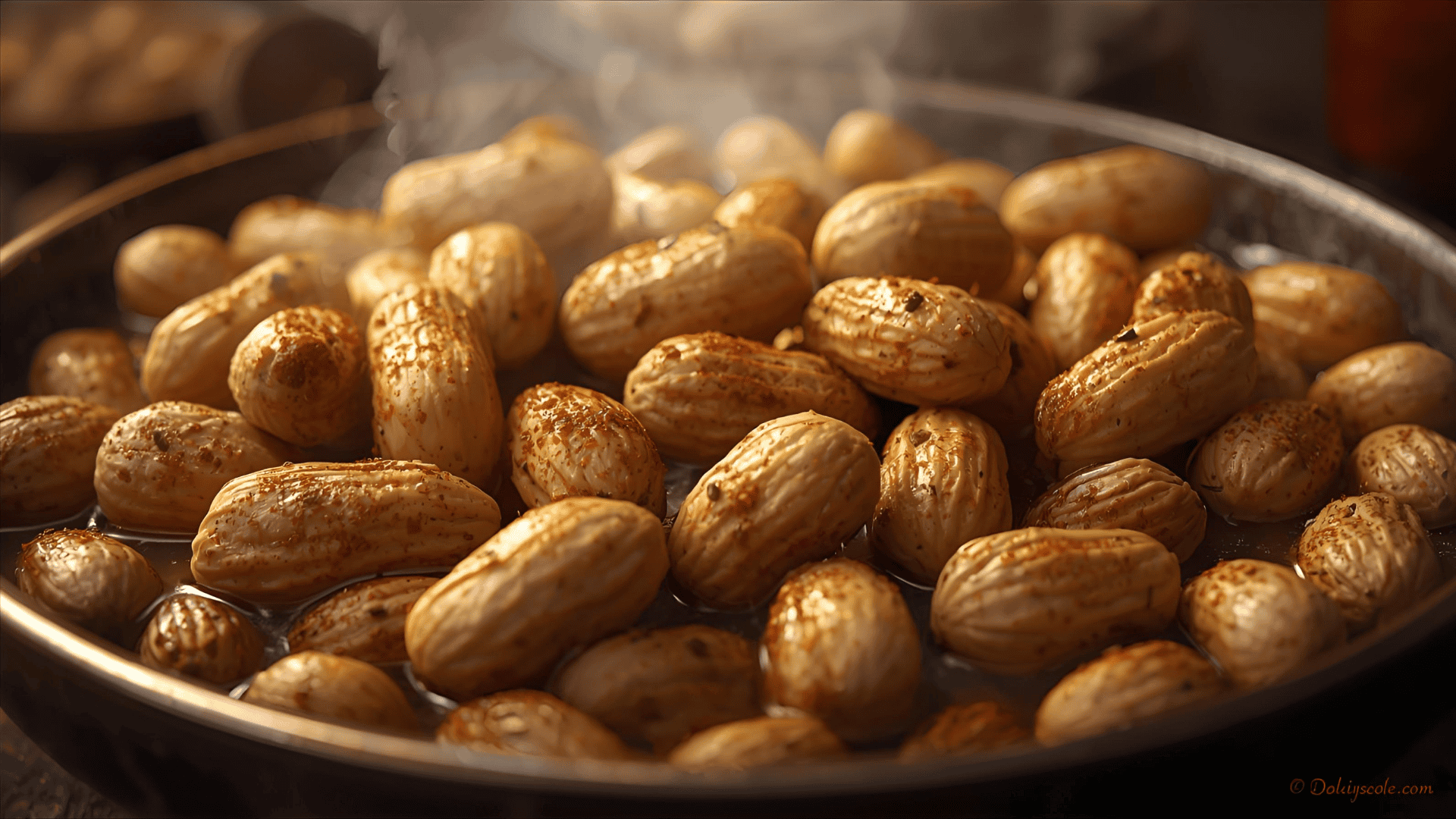Walk through any Southern gas station or roadside stand, and you’ll spot them bubbling away in large pots.
Boiled peanuts might look unappetizing to newcomers, but locals can’t get enough of these soft, salty treats.
The boiling process changes hard, crunchy peanuts into something completely different, chewy, bean-like, and surprisingly addictive.
But here’s what most people don’t know: boiling actually makes peanuts healthier than their roasted counterparts.
While roasted peanuts lose antioxidants during dry heating, boiled peanuts retain beneficial compounds and are easier to digest.
Additionally, their high water content makes them lower in calories, making them perfect for weight-conscious snackers.
In this guide, we’ll examine their complete nutritional profile and show you how to make the healthiest version at home.
Also read: Meet Fox Nuts: Your New Guilt-Free Snack
How Boiling Changes Peanuts?
Boiling doesn’t just soften peanuts; it completely transforms their flavor, texture, nutrition, and even how your body digests them.
- Flavor: Boiling removes the bitter raw taste and creates a mild, bean-like flavor that soaks up salt and spices well.
- Texture: The hard, crunchy peanut becomes soft and chewy, similar to cooked beans.
- Nutrition: Boiling increases antioxidant levels while reducing compounds that can cause stomach upset.
- Digestibility: The long boiling process breaks down tough compounds, making them gentler on sensitive stomachs than raw or roasted peanuts.
- Shelf Life: Boiled peanuts spoil quickly at room temperature, but they can be safely stored in the refrigerator or freezer for extended use.
Health Benefits of Boiled Peanuts

Boiled peanuts are packed with protein, fiber, and powerful antioxidants, making them a heart-healthy, nutrient-rich snack when enjoyed in moderation.
1. Rich in Antioxidants
Boiled peanuts contain up to four times more antioxidants than roasted peanuts. The boiling process actually increases the levels of beneficial compounds, such as resveratrol and flavonoids.
These powerful antioxidants help fight free radicals in your body. They may reduce inflammation and protect cells from damage over time.
2. Heart Health Support
The healthy monounsaturated and polyunsaturated fats in boiled peanuts support cardiovascular health. Resveratrol, the same compound found in red wine, helps protect blood vessels.
Regular consumption may help naturally lower bad cholesterol levels. These nutrients work together to reduce the risk of heart disease.
3. Protein for Muscle Growth
A half-cup serving of boiled peanuts provides about 9 grams of complete plant-based protein. This protein contains all the essential amino acids your muscles need to grow and repair.
It’s an excellent option for vegetarians and vegans seeking to boost their protein intake. The protein also helps keep you feeling full and satisfied longer.
4. Digestive Benefits
Boiled peanuts are rich in dietary fiber, which promotes healthy digestion. One serving provides about 5 grams of fiber to support regular bowel movements.
The soft texture makes them easier to digest than raw or roasted peanuts. Fiber also feeds beneficial gut bacteria that support overall digestive health.
5. Low Glycemic Index
Boiled peanuts have a low glycemic index, which means they won’t rapidly spike blood sugar levels. This makes them a smart snack choice for people managing diabetes or prediabetes.
The combination of protein, healthy fats, and fiber helps stabilize blood glucose. They provide steady energy without the crash that comes from high-sugar snacks.
Are Boiled Peanuts Good for Weight Loss?

With fewer calories, high water content, and a satisfying mix of protein and fiber, boiled peanuts can be a surprisingly effective snack for supporting weight loss when enjoyed in moderation.
- Low-Calorie Density: Boiled peanuts absorb a significant amount of water during the cooking process, which dilutes their calorie content. This means you get fewer calories per bite compared to dry-roasted peanuts. The high water content helps fill you up without adding extra calories.
- Satiety Factor: The protein and fiber in boiled peanuts work together to keep you satisfied for hours. This helps prevent between-meal cravings and reduces the urge to reach for unhealthy snacks. When you feel full longer, you naturally eat less throughout the day.
- Mindful Eating: Cracking open each shell forces you to eat slowly and pay attention to your food. This natural pause between bites gives your brain time to register fullness signals. Slower eating often leads to eating less overall and better portion control.
- Smart Swap: Trading high-calorie snacks like potato chips or candy bars for boiled peanuts can save hundreds of calories. You still get a satisfying, flavorful snack that provides real nutrition. This simple swap can make a big difference in your daily calorie intake.
Pro Tip: A half-cup serving provides plenty of flavor and nutrition without overdoing the calories. Homemade versions allow you to control the salt content, which is healthier for you. Excessive sodium intake can lead to water retention and bloating.
Boiled Peanuts: Drawbacks and Precautions
While boiled peanuts are nutritious, excess salt, calorie intake, and allergy risks mean moderation is key for healthy snacking.
- High Sodium Content – Commercially boiled peanuts can contain 400-600mg of sodium per serving, which is approximately 25% of your daily limit.
- Allergy Considerations – People with peanut allergies should completely avoid boiled peanuts as the cooking process doesn’t eliminate allergenic proteins.
- Overeating and Calorie Intake – A cup of boiled peanuts contains approximately 280 calories, making portion control crucial to prevent excessive calorie consumption.
- Storage and Spoilage Risks – Boiled peanuts spoil quickly at room temperature and must be refrigerated within 2 hours or frozen for longer storage.
Boiled Peanuts vs. Other Peanut Snacks

From calories to antioxidants, here’s how boiled peanuts stack up against roasted peanuts, peanut butter, and peanut flour to help you choose the healthiest option.
| Snack Type | Calories (per oz) | Protein (g) | Fat (g) | Sodium (mg) | Antioxidants | Best For |
|---|---|---|---|---|---|---|
| Boiled Peanuts | 90-100 | 4-5 | 6-7 | 200-400 | Highest | Heart health, antioxidants |
| Roasted Peanuts | 160-170 | 7-8 | 14-16 | 2-5 | Low | Protein intake, convenience |
| Peanut Butter | 190-200 | 7-8 | 16-18 | 140-190 | Medium | Quick energy, muscle building |
| Peanut Flour | 110-120 | 16-18 | 2-4 | 0-10 | Low | Low-fat protein, baking |
Which Option Is Healthiest by Diet Goal
- Weight Loss: Boiled peanuts are a winning choice due to their lower calorie count and higher water content, which helps increase fullness.
- Heart Health: Boiled peanuts are the best option due to their higher antioxidant levels and lower calorie density.
- Muscle Building: Peanut flour provides the most protein per calorie, followed by roasted peanuts.
- Low Sodium Diet: Unsalted roasted peanuts or peanut flour are better choices than heavily salted boiled peanuts.
- Blood Sugar Control: Boiled peanuts have the lowest glycemic impact due to their high water content.
- Convenience: Roasted peanuts and peanut butter last longer and require no preparation time.
How to Make Healthy Boiled Peanuts at Home?

Start with fresh raw peanuts in the shell from a reliable source to ensure maximum nutrition and flavor.
For low-sodium versions, use just 1-2 tablespoons of salt per gallon of water instead of the traditional heavy salting.
Alternatively, try flavorful alternatives like garlic powder, cayenne pepper, or bay leaves for a flavorful taste with reduced sodium content.
To maximize nutrition, avoid overcooking for more than 6 hours and maintain a gentle simmer rather than a rolling boil during the cooking process.
Store leftover cooking liquid as it contains water-soluble vitamins that leached from the peanuts during cooking.
Always use filtered water when possible and add a splash of vinegar to help preserve the antioxidants during the long cooking process.
Closing Remarks
Boiled peanuts deserve recognition as more than just a regional snack food. They offer impressive health benefits that put them ahead of other peanut products in several key areas.
The high antioxidant content, heart-healthy fats, and complete protein make them a smart choice for health-conscious snackers.
The main concerns center around sodium content and portion control. Choose lightly salted versions or make your own at home to control the amount of salt you consume.
When comparing snack options, boiled peanuts stand out for their unique combination of nutrition and satisfaction. They provide steady energy without blood sugar spikes.
Ready to try this nutritious Southern tradition? Start with a small batch at home using our low-sodium recipe, or look for lightly salted versions at your local farmers market.








